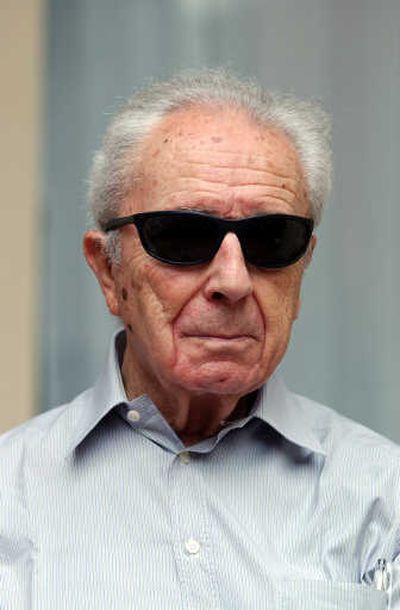Director Antonioni dies at 94

Michelangelo Antonioni, the master Italian film director who depicted the emotional alienation of Italy’s postwar generation in films such as “L’Avventura” and “La Notte” but achieved his greatest popular success with “Blowup,” an enigmatic tale set in “swinging” London of the 1960s, has died. He was 94.
Antonioni, who suffered a debilitating stroke in 1985 that severely limited his ability to speak, died at his home in Rome on Monday evening, according to Italy’s ANSA news agency.
Italian President Giorgio Napolitano said Tuesday that Italy had “lost one of cinema’s greatest protagonists and one of the greatest explorers of expression in the 20th century.”
For many American filmgoers, Antonioni might be best remembered for his English-language films “Blowup,” “Zabriskie Point” and “The Passenger.”
“Blowup,” his 1966 film about a London fashion photographer (David Hemmings) who discovers that he inadvertently might have captured a murder in a park while surreptitiously shooting pictures of a tryst between a young woman (Vanessa Redgrave) and an older man, was the director’s first English-language film.
An imaginary tennis game played by white-faced mimes at the end of the film, which film scholars say symbolizes the difference between illusion and reality and whether a murder even occurred, has been described as “one of the defining moments of 1960s cinema.”
The film earned Antonioni Oscar nominations for best director and screenplay.
“Zabriskie Point,” the director’s 1970 vision of campus revolutionaries and the current American scene, was a box-office disappointment panned by most critics. But “The Passenger,” his 1975 suspense drama starring Jack Nicholson as a disillusioned TV journalist in Africa to cover a civil war and who assumes the identity of a dead man in his hotel who turns out to have been a gunrunner, has been called one of the great films of the 1970s.
Antonioni’s three cinematic parables of alienation – “L’Avventura,” “La Notte” (“The Night,” 1961) and “L’Eclisse” (“The Eclipse” 1962) – marked what film historian Andrew Turner has called the discovery of a “new cinematic language” and are “among the truly extraordinary achievements of postwar cinema.”
In 1982, the director’s drama “Identification of a Woman,” about a film director in search of “the ideal woman” for a movie, generated negative critical reaction and failed to receive U.S. distribution. Three years later, he suffered the debilitating stroke that paralyzed his right side and severely limited his ability to speak.
The once-divorced Antonioni married Enrica Fico in 1986, and she is his only survivor, as he had no children.
After Antonioni’s stroke, Enrica is said to have become the inspiration for his rehabilitation. Through the efforts of his wife and several French producers, Antonioni returned to filmmaking with “Beyond the Clouds,” a 1995 European-made quartet of love stories.
The film had its world premiere at the annual American Film Institute Film Festival in Los Angeles in 1995, the same year Antonioni received an honorary Academy Award for lifetime achievement.
“Most movies celebrate the ways we connect with one another,” Nicholson said in his introduction at the Academy Awards ceremony. “Films by this master mourn the failures to connect.”